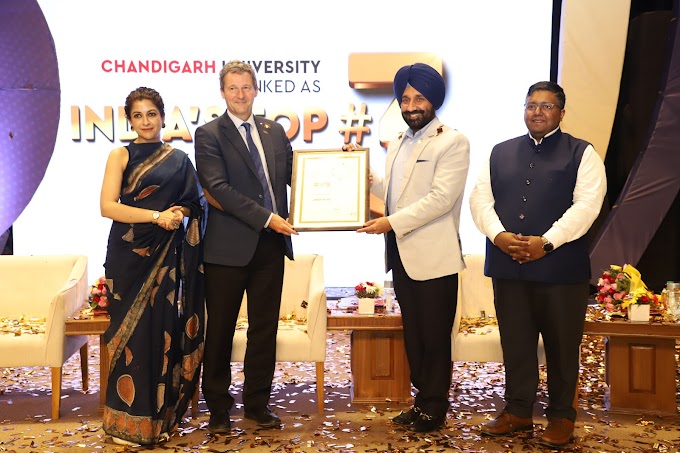The outbreak of COVID shows that society ends up paying extremely high economic and social cost for violating natural environment says Shyam Sunder Jyani
Chandigarh University organized International Seminar on the theme of “Youth for Earth: Restore and Protect Our Ecosystems” on the eve of World Environment Day. The virtual session was attended by Dr. Jagmohan Sharma (IFS), Additional PCCF, Karnataka Forest Department, Taegyyun Kim, Environment Researcher and President Festival du sud, South Korea, Shyam Sunder Jyani, Eminent Indian Environmentalist & Associate Professor, Sarah Oliver, Global Youth Coordinator, United Religions Initiative, South Africa. Prior to the online seminar, senior officials of the university planted saplings on the campus and conveyed the message of environmental protection to all.
While giving his inaugural address Dr. Jagmohan Sharma said, “Over the past 2 centuries human activities has impacted the natural resources, Planet earth is dominated by human and human are changing the face of our earth”. Dr. Jagmohan further said, “Humans are the most powerful being on this planet earth enabled by technology but do not care much about natural environment, instead put an unsustainable charge on planet earth without recognizing the risk imposing to our long-term survival”. While speaking on the restoring natural ecosystem he said that we can restore and enhance the productivity of natural ecosystem by integrating environment friendly practices in land uses by integrating tress and animal husbandry with agriculture. Court, society and youth are responding with positive action for environment protection, restoration and rejuvenation of ecosystem. In a recent verdict Supreme Court has accepted Sustainable Development as balancing concept between ecology and development, added Dr. Jagmohan.
While giving the keynote address, Shyam Sunder Jyani said, “Climate change is influencing the spread of various diseases. The complex nature of human animal interface is constantly influenced by the effect of climate change, anthropogenic and natural factors. Approximately 60 percent of emerging human pathogens are zoonoses”. Prof. Shyam further said, “The re-emergence of zoonotic diseases is also driven by pathogen adaption and animal migration because of the deforestation that leads to the loss of habitat and forcing the animals to migrate. so, there is a need to address the climate change issue more seriously to protect our health and to restore our ecosystem”. The role of youth is very crucial in environment protection because youth have more access to modern technology & tools as compare to common people. By understanding the complex issue of climate change youth can contribute in a better way by aware the people about the dynamics and local aspect of climate change, added Prof. Shyam.
“Climate change is pervasive and growing global threat to biodiversity and ecosystems. We have to protect our environment and restoring and healing our relationship with the nature. Climate crisis is the top priority that needs to be tackled in order to have a future worth living”, said Sarah Oliver. Young people have the power to inspire each -others and to work together to brain storm solutions and implement action to protect our environment, added Sarah Oliver
“We have already seen the observable effect of climate change on the environment. It is one of the biggest problem in front of humankind and we have to tackle this problem altogether. Recycling and conserving the natural resources greatly contribute towards restore and protect our ecosystem”, said Taegyyun Kim.





